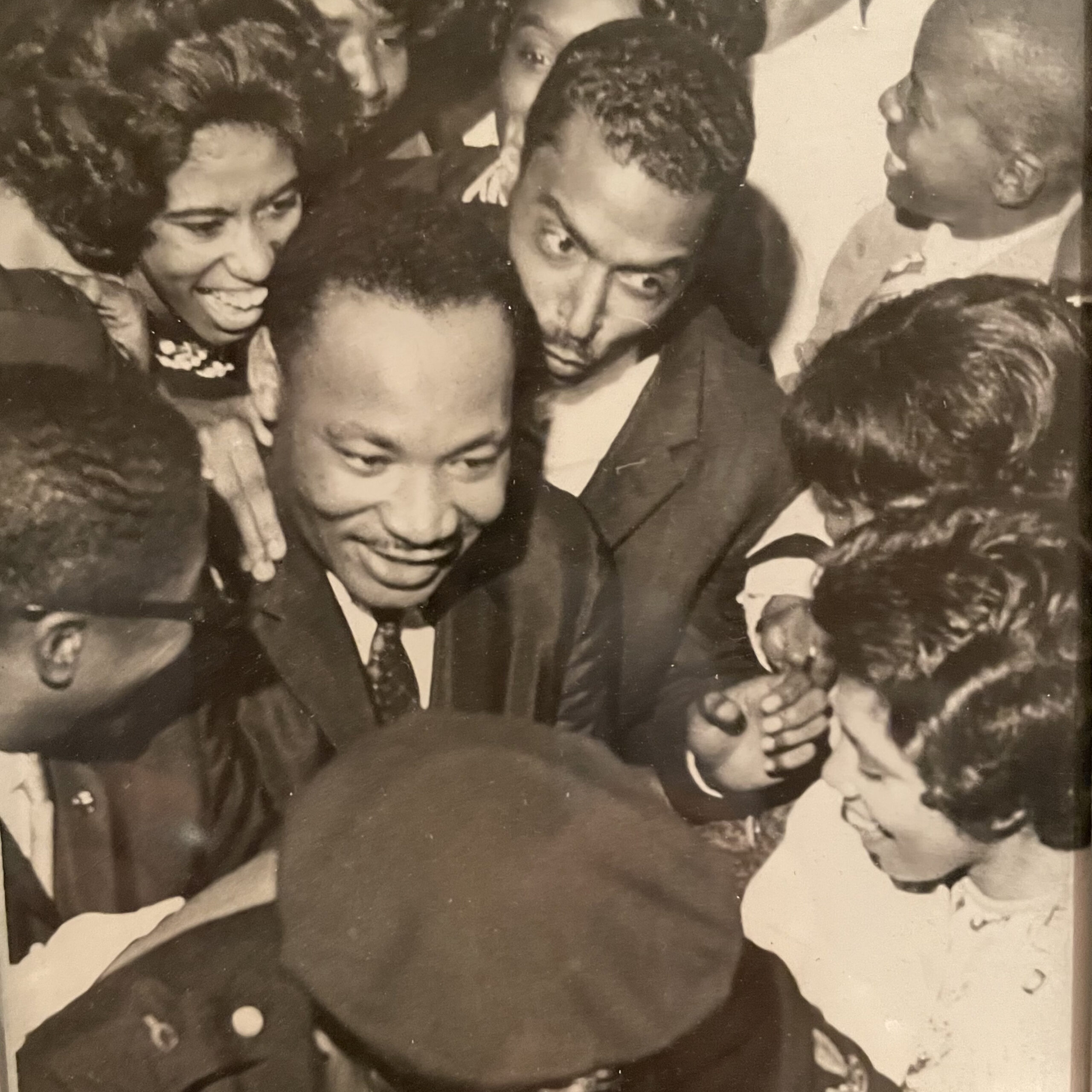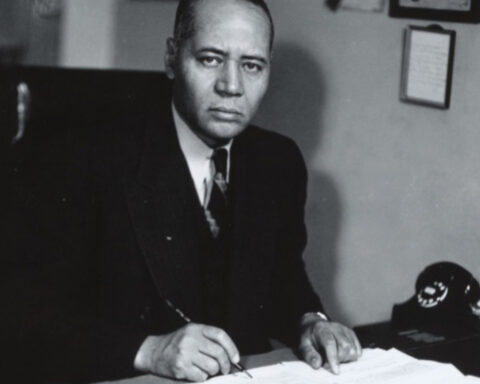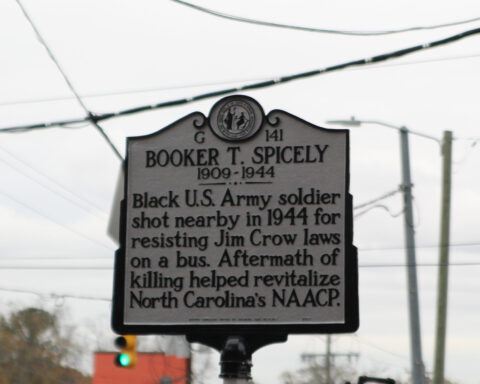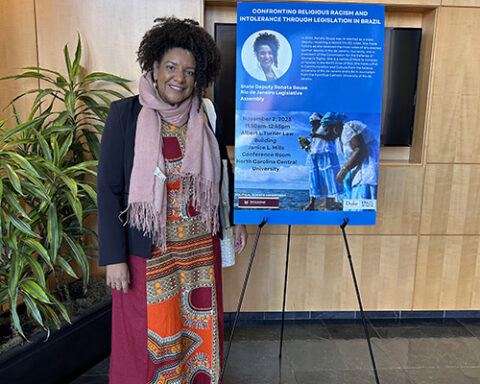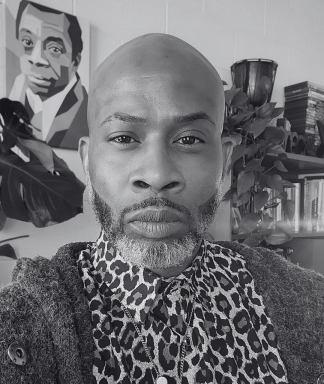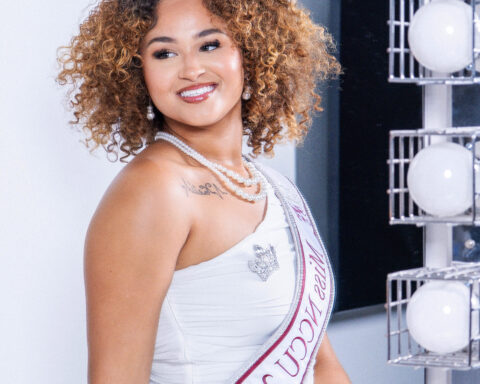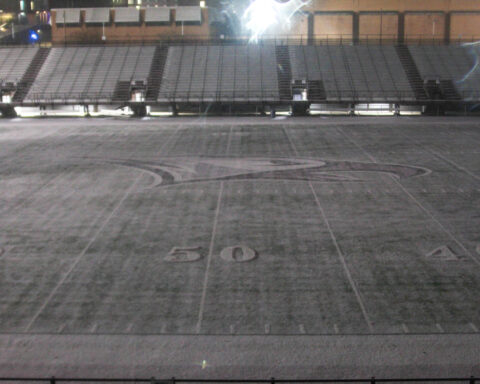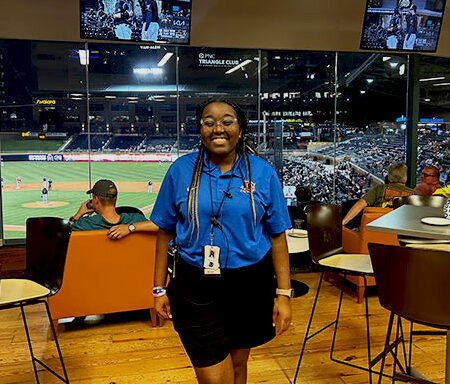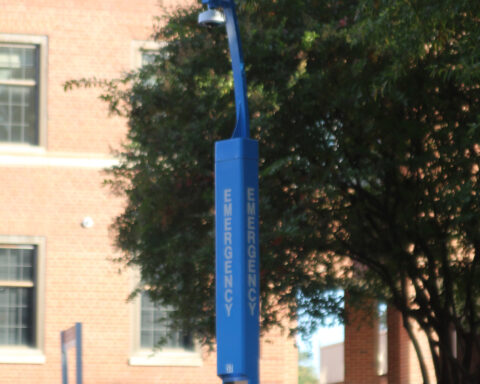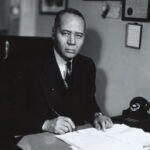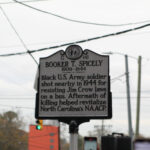An autumn evening in 1964 at the N.C. College at Durham saw the community explode with emotion.
It was Nov. 13 at the McDougald-McLendon Arena. And thousands of animated Durhamites and students were eager to hear Rev. Martin Luther King Jr.
It was a fitting location for the speech.
Durham civil rights icon Richard McDougald, an executive vice president of Mechanics and Farmers Bank and a president of Mutual Building and Loan Association, had promoted Black home ownership in Durham throughout the mid-1900s.
In 1944, basketball coach John McLendon organized the first fully integrated college basketball game. At that “Secret Game,” N.C.C. topped Duke Medical School 88-44.
Former Sen. Mickey Michaux, then-president of the Alumni Association, said King needed a police escort to get through the crowd.
“It was jam-packed full,” the NCCU alumnus said. “He depended on me to keep things moving.”
This visit nearly marked a month after King was awarded the Nobel Peace Prize for his work in civil rights. While King and Michaux walked toward the stage, community members were so excited that they reached out to touch King, according to Campus Echo reporting at the time.
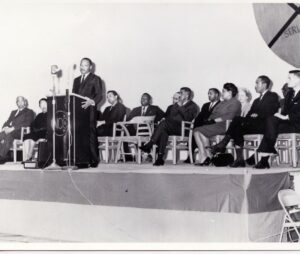
King’s speech was titled: “Remaining Awake through a Great Revolution.” Speaking to those in attendance and beyond, King urged the people to “make of this world a brotherhood.”
“We must learn to live together as brothers,” King said, “or we will perish together as fools.”
This visit and others featured a strong bond between King and Michaux. Using documents from N.C. Central University Archives, secondary research and testimony from Michaux, the Campus Echo observes Martin Luther King Jr. Day by digging into the history between these two leaders.
1956
Michaux first met King’s younger brother, the Baptist minister Alfred Daniel “A.D.” King as a student at the Palmer Memorial Institute, a preparatory school in Sedalia, N.C. He didn’t come into contact with Martin until October 1956.
At the time, Michaux was a member of the Durham Business and Professional Chain, a business advocacy organization. That October, he was the chairman of the “Trade Week Program.”
He noticed that King was “making headlines” as the leader of the Montgomery Improvement Association, the group behind the Montgomery Bus Boycott. Michaux connected with Louis Austin, editor of the Carolina Times, a Black-owned newspaper in Durham, and told him that he wanted to use his connection with A.D. King to bring the civil rights leader to the city.
Sen. Michaux recalled that Austin said: “Negro that’s a good idea.”
They both contacted King’s secretary to schedule a conversation. After “about an hour,” King called Michaux back.
“He said ‘You know I always wanted to come to Durham,’” Michaux said.
He explained how Durham and Atlanta had a “symbolic relationship.” Both cities had growing Black-owned health and banking companies.
“Durham and Atlanta were rivals – friendly rivals,” Michaux said. “In terms of home ownership, all of it was about the same.”
During their conversation, King added that he wanted to see how Durham operated.
However, Michaux’s colleagues at the business organization weren’t happy with his decision to invite King.
“I got cussed out,” he said, adding that they disapproved of having a preacher speak in a business setting. “They jumped my case something terrible before he got there.”
“I made sure that those people who jumped my case had a part in the program.”
When King arrived, Michaux picked him up from the airport. From there, he drove him to his mother’s house, where he would stay for his trip. Located on Formosa Avenue, Michaux’s childhood home would’ve given King a view of N.C.C as he was just across the street from the growing university.
Michaux said the event was a success, and he received many compliments. He recalled one person’s claim that inviting King was the “greatest thing you ever did for Durham.”
After his first visit, the friendship between the NCCU alumnus and the civil rights activist grew. When he was touring the state, King frequently spent nights at the Michaux household. They traded ideas on activism. And Michaux recalled how King enjoyed his mother’s cooking.
In another exchange, King asked Michaux why he didn’t refer to him as “Doc,” a term others had used.
Michaux said he told him about his time at Palmer and how he learned a lot from Charlotte Hawkins Brown, the school’s leader and educator. She was the only one he referred to as “Doc.”
“I started by calling him man-man,” Michaux said. “But Martin gotten to be what it was.”
“I can feel something coming on …”
As the Civil Rights Movement heated up in the 60s, so did King’s travels. According to multiple sources, including NCCU Archives and Durham County Library publications, King made five trips to Durham.
One of those visits occurred on Feb. 16, 1960. Days after the Greensboro sit-ins, he gave his influential speech, “A Creative Protest/Fill Up the Jails,” at the White Rock Baptist Church.
“Durham was a fertile ground for activism,” said Andre Vann, NCCU archivist and professor of history. “They were quite conscious of the fact that change was needed and to have an encourager, someone to come along and usher in that was important.”
On those “important” trips, Michaux assisted in managing the events and kept King on time.
“I was on call,” Michaux said, referring to King’s trip to N.C.C. “I was too busy making sure that the program ran right because he had to catch a plane to get out of there that night.”
But sometimes, the plans were ruined by the moment. During another speech, Michaux had to reschedule a flight after King informed him that he “feel something coming on.”
The two leaders kept in contact throughout these trips, as well as the others outside of North Carolina. Michaux said that they spoke “once or twice” a week.
In 1963, on the eve of the March on Washington, Michaux was at a real-estate conference in Chicago. He received a call from Bernard Lee, King’s chief of staff, inviting him to attend the rally.
He said he flew from Chicago to D.C. and met King before the speech began.
“I said, ‘Martin, I never seen a crowd this big,’” Michaux said. “What are you going to tell these people?”
King responded by tapping his chest, which implied that he was going to speak from the heart.
Michaux also said that while most people remember the “I Have a Dream” speech from its ending, he will never forget it by its beginning.
“‘We came to cash a check, marked, returned, insufficient funds,’” Michaux said.
A year later, the NCCU alumnus decided to enter the political world. While he had previously recoiled at the idea, King always insisted that he would make a good politician.
When Michaux finally informed King of this change, he remembered a “deafening silence” before King finally spoke up.
“Well, it’s about damn time you decided to do something I asked you to do,” Michaux said, mocking his friend.
King witnessed Michaux’s first campaign, but would be assassinated before Michaux became a representative in 1972.
“If only …”
According to multiple sources, King was expected to be in Durham the week he was in Memphis.
Michaux confirmed this, adding that King called him at the start of the week.
“He said, ‘I gotta go back to Memphis because we have some problems,’” Michaux said.
Michaux then looked for the next best weekend. King would return home after Memphis to assist in the scheduling, but it never came to be. On April 4, 1968, King was shot on the balcony of his Lorraine Motel room. He was rushed to a nearby hospital and was pronounced dead an hour later. He was 39.
The news sparked riots all over the country. However, Durham was a “little more restrained in its response.”
“Everybody knew he was due here that weekend,” Michaux said, adding that Durham’s reaction was to honor the nonviolent principles King stood for.
“A lot of us said, ‘If only he had come, he would probably still be with us today.’”
Shortly after his death, a national push to establish a Martin Luther King Jr. holiday began. It took multiple votes in the federal and state legislatures, and it wasn’t until 1983 that President Ronald Reagan signed the federal bill. Yet, it wasn’t observed until 1986.
Patience was running thin back in Durham. According to a 1985 memorandum by C.L. Patterson, then-vice chancellor of academic affairs, NCCU started celebrating the holiday a year before.
Although King’s 1964 visit marked the last recorded time he was seen by Eagles, NCCU continued to hear from his family members.
Rev. Martin Luther King Sr. spoke at NCCU’s 1976 graduation ceremony. And King’s daughter, Bernice, delivered the annual Martin Luther King Jr. Day address in 2007, highlighting the bond Atlanta and Durham have to this day.
In the decades since his passing, Sen. Michaux remained committed to the civil rights leader’s memory. He said King told him one story that “kept me going.”
While King was at a meeting in Alabama, he learned that his house was firebombed. He dropped everything and returned home to make sure his wife, Coretta, and his daughter, Yolanda, were safe.
Following that traumatic reunion, King reached for his shotgun. But when he opened his door, he froze in place. He saw a large crowd of Black people, holding “every kind of weapon you can think of, ready to go to war.” King proceeded to close the door and put his shotgun away.
Michaux asked King why he had the gun in the first place, and King’s response:
“It came with the house.”

